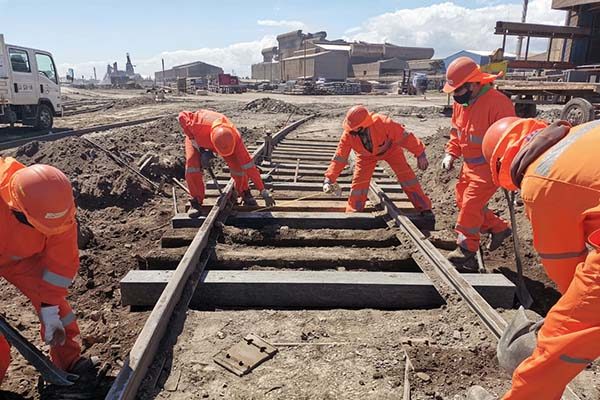Green ties are in fashion this season
Louisiana company turns landfill-bound plastics into railroad cross-ties.

You might not think of the venerable railroad cross-tie as something ripe for innovation. But a composite-products manufacturer in Louisiana sees things differently. In fact, it has big plans to bring the humble cross-tie—the rectangular block that keeps steel rails bolted to the ground—into the 21st century by making it from more sustainable materials.
Traditional railroad ties are made either of wood treated with chemicals or of longer-lasting—and more expensive—concrete, according to Sarepta, Louisiana-based IntegriCo. The private equity-backed firm says a better—and more eco-friendly—way to make railroad ties is to use plastics that would otherwise end up in a landfill.
IntegriCo says it works with recycling centers called Material Recovery Facilities (MRFs) to collect discarded recyclables like ketchup bottles, yogurt containers, margarine tubs, meat trays, egg cartons, and plastic cups and plates. The company then uses a special “low-heating” process that preserves the properties of those source items to create a tough, composite material. The resulting “IntegriTies” can extend the life of railroad ties by up to four times the lifespan of traditional wooden ties in high-rot areas, IntegriCo says.
Since it invented its recycling process in 2007, the company says it has diverted more than 80 million pounds of landfill-bound plastics to the manufacture of products like the railroad ties.Copyright ©2024. All Rights ReservedDesign, CMS, Hosting & Web Development :: ePublishing